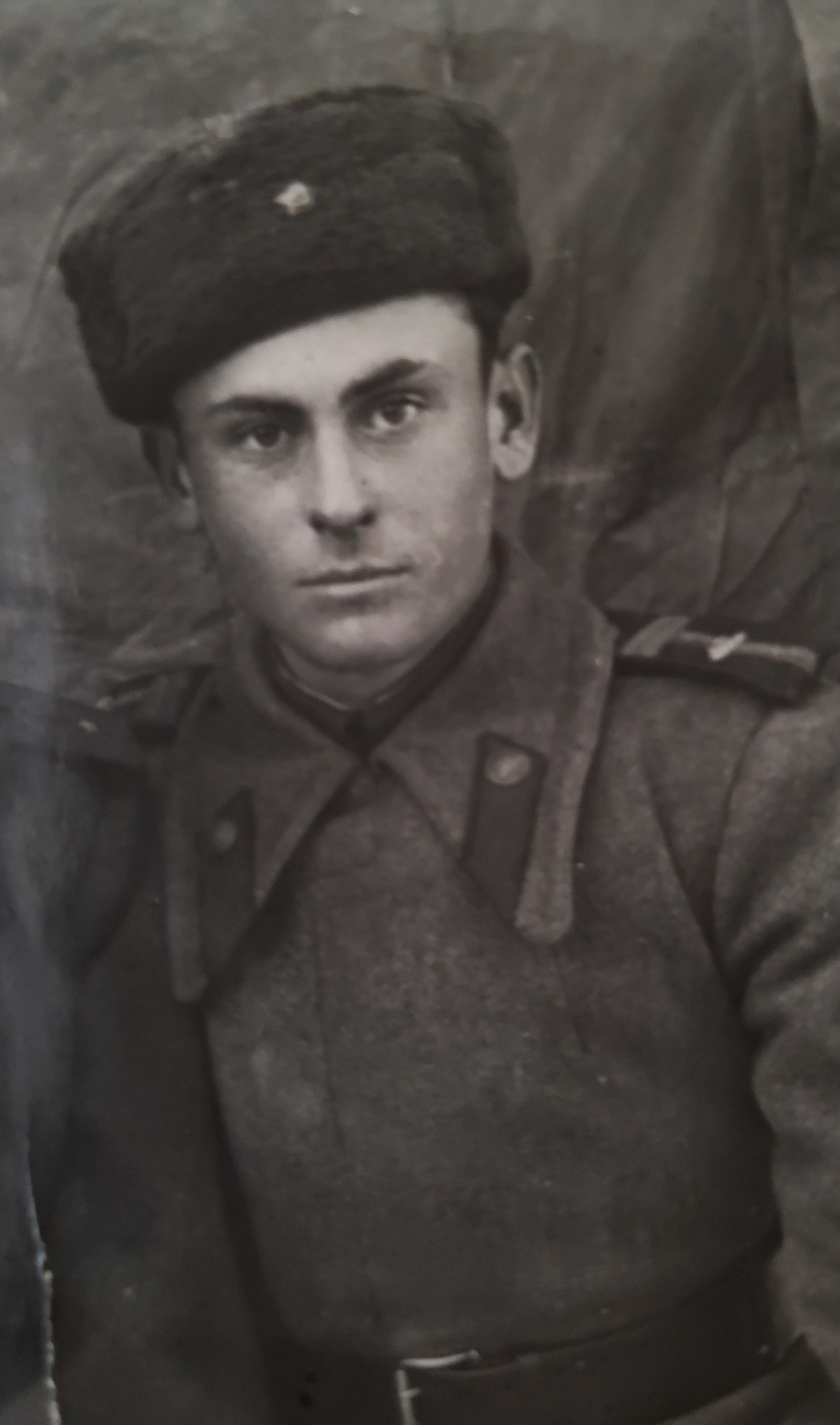Moisha Konovalov was born in 1921 in the town of Staraya Sinyava (in present-day Khmelnytskyi Oblast, Ukraine). He was one of five siblings.
In 1939, after completing high school, Moisha Konovalov enrolled in the Odessa Construction Institute. As a first-year student, Mikhail (as he had become known by that point) was drafted into the Red Army. In September 1939, the unit in which he served took part in the annexation of Eastern Poland, which was incorporated into Soviet Ukraine and Belorussia.
In late June 1941, immediately after the Nazi invasion of the USSR, Mikhail Konovalov was sent to the front lines, and began to serve in an armored formation. He was wounded several times, suffered from burns when his tank had caught fire, and was shell-shocked. The numerous fragments that became lodged in his body during the war would trouble him until the end of his days. Despite being repeatedly nominated for various decorations, Konovalov never received any orders.
Konovalov's three brothers also fought in the war. Grigory and Izya came back after V-E Day, whereas Vladimir went missing in action. Their parents, who had refused to evacuate from Staraya Sinyava, died in the Holocaust, along with Mikhail's younger sister and the rest of the town's Jewish community.
Upon being discharged from the army in 1945, Konovalov returned to Odessa and resumed his interrupted studies. After graduating from the Institute, the engineer Mikhail Konovalov headed the sanitary department at the Odessa Design Institute.
In 1972, Mikhail was accused of setting up an illegal Zionist organization, since his department was staffed mostly by Jews. Konovalov was able to protect his employees. However, the mental strain affected his health, and he suffered a heart attack. He went on to work at the Design Institute until his retirement, while also teaching at the Construction Institute.
In 1989, Mikhail Konovalov immigrated to the United States with his family. He died in 1992, during a trip to Israel, and was buried at a Jewish cemetery in Brooklyn.







